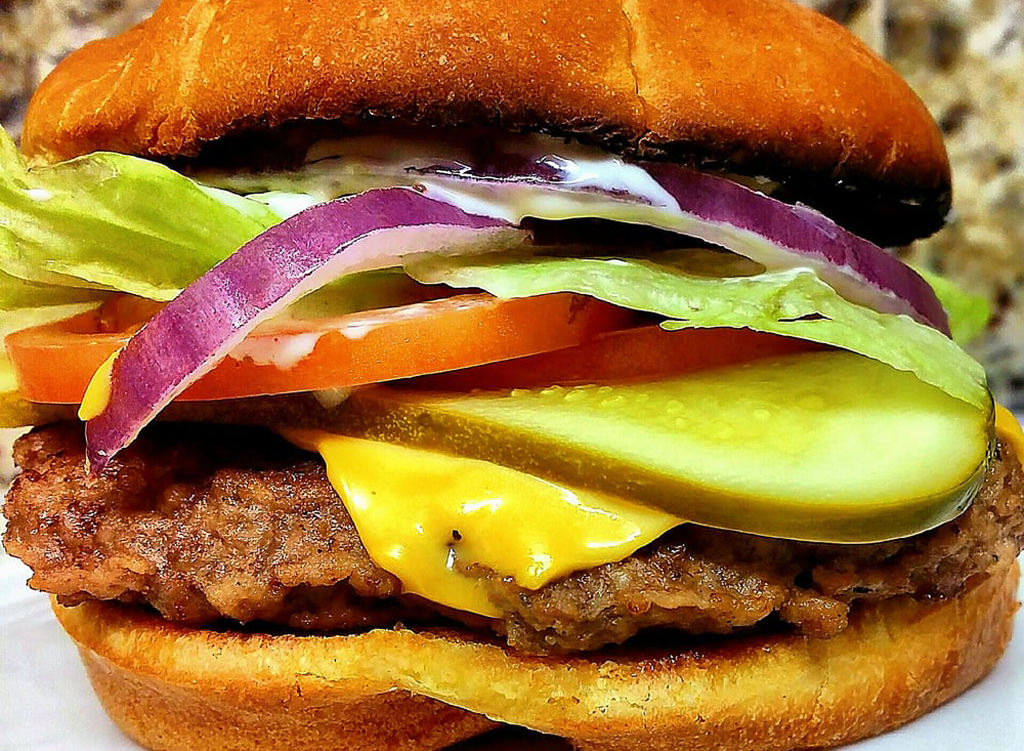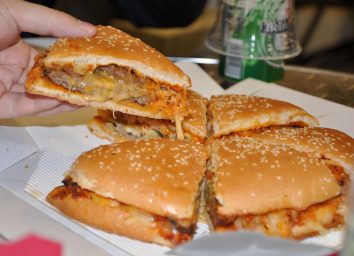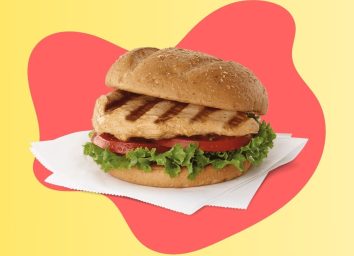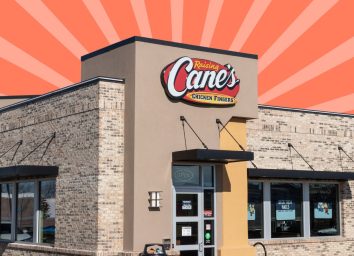4 Fast-Food Chains With the Biggest Food Poisoning Scandals In History
Foodborne illnesses affect about 1 in 6 Americans annually. While most of these occurrences end up being on the milder end of the illness spectrum and don't require hospitalization, the Centers for Disease Control and Prevention (CDC) estimates that as many as 3,000 people die from a foodborne illness every year.
While we've come a long way in food safety regulation since the dawn of fast-food restaurants, it took several large-scale outbreaks to get us there. These are the fast-food brands that dealt with some of the biggest food poisoning scandals in history. While some managed to regain the trust of consumers, for one particular chain, it was a deadly blow that put it out of business.
To learn how to protect yourself from contracting a foodborne illness, check out 10 Best Ways to Avoid Foodborne Illness.
Taco Bell
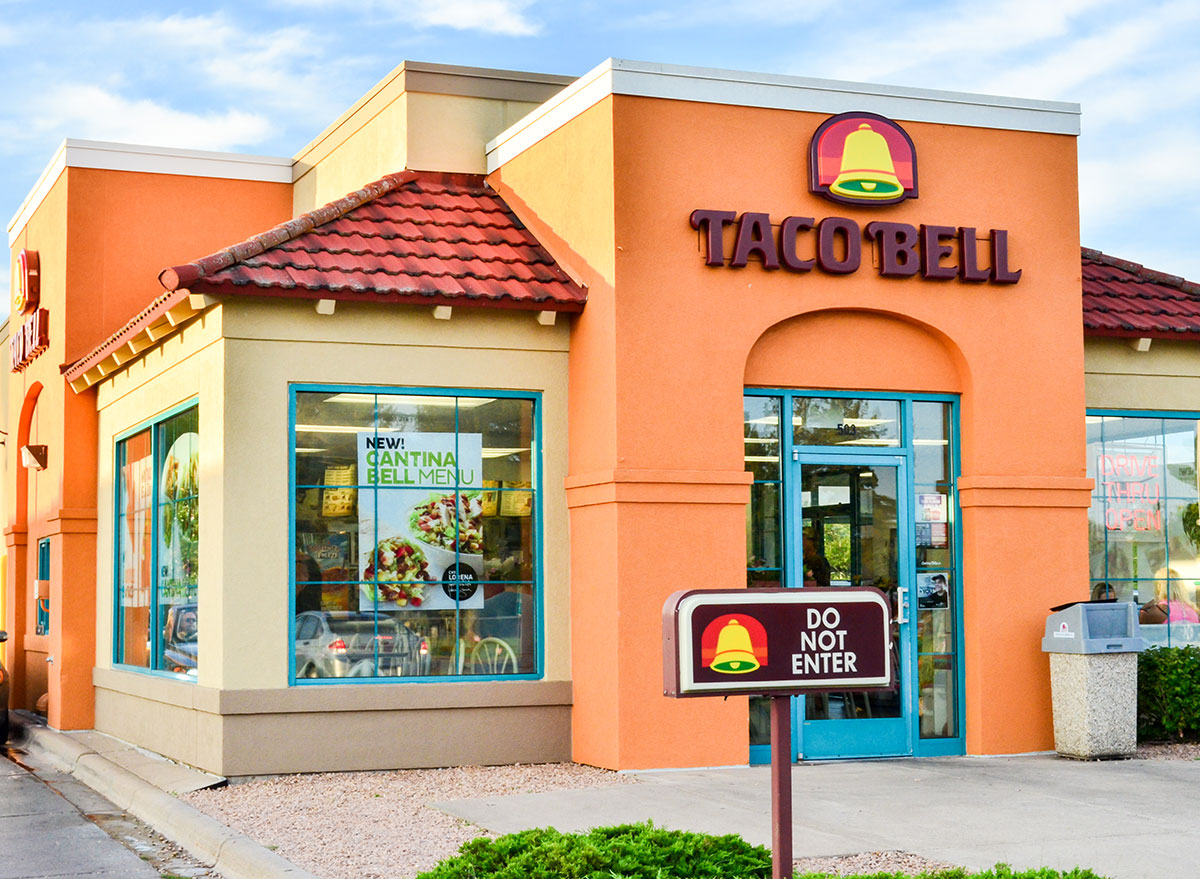
In 2006, the fan-favorite Mexican chain experienced its largest public-health crises to date, when more than 70 people across four Northeastern states ended up contracting E. Coli after eating at its locations. For as many as 53, the infection was severe enough to require hospitalization.
After an investigation by the FDA, the culprit was found to be the chain's shredded lettuce—an ingredient found in more than 70% of Taco Bell's menu items.
Chipotle
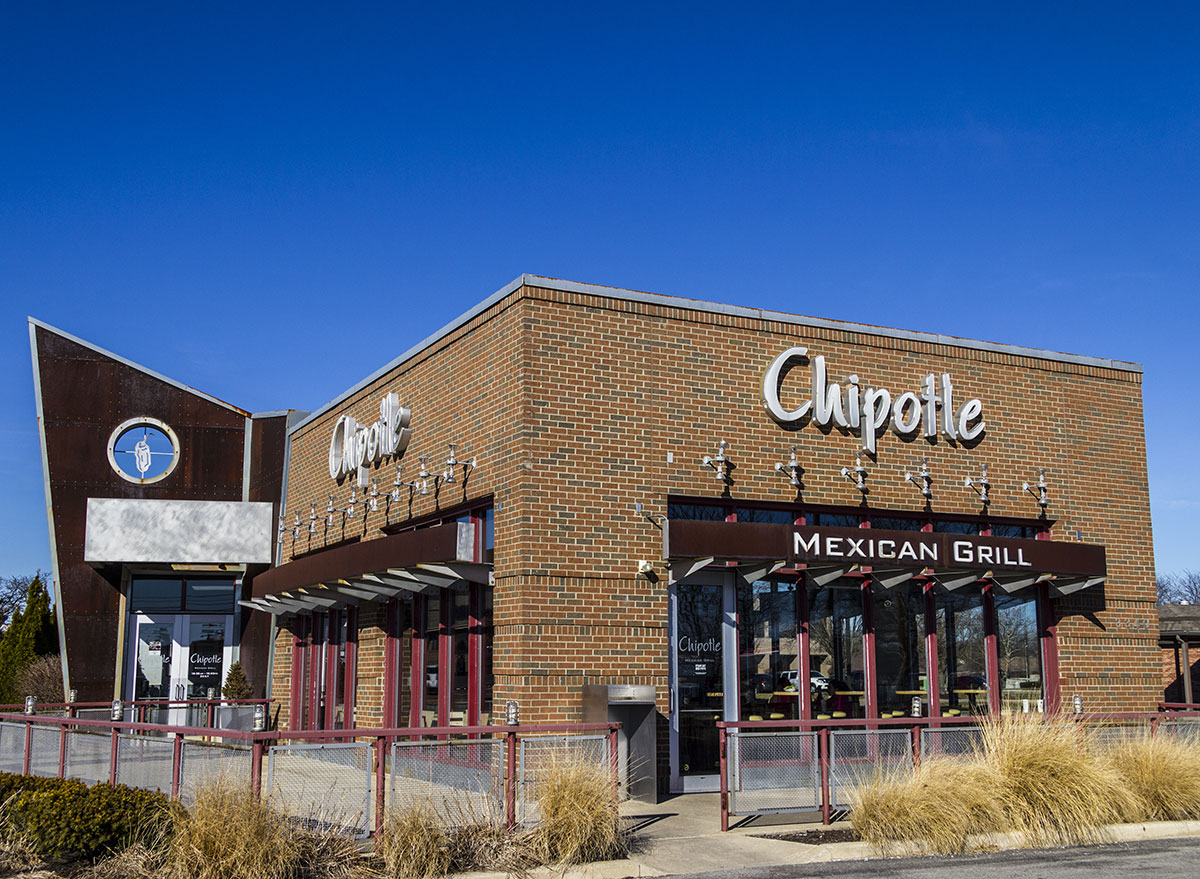
Chipotle had several smaller incidences of foodborne illness outbreaks in the late 2000s, when some of its restaurants in California and Ohio ended up being linked to cases of hepatitis and norovirus respectively. But it was in 2015 that the chain's wholesome, health-forward reputation took a major downturn.
A series of foodborne illness outbreaks caused by norovirus, salmonella, and E. Coli sickened more than 1,100 people between 2015 and 2018. The chain's negligent attitude toward maintaining health standards was serious enough to warrant criminal charges—the Justice Department charged Chipotle with violating federal law by adulterating food. Chipotle agreed to improve its food safety program as well as pay a $25 million criminal fee to avoid conviction, the largest-ever fine of its kind, according to Food Safety News.
And while the chain's reputation has more than recovered, it still seems to have a hard time avoiding these types of public health crises. Its latest brush with a potential norovirus outbreak in Colorado happened as recently as May.
So why does this keep happening to the popular fast-casual? According to one employee, the chain's severely understaffed restaurants leave its employees overworked and more prone to frequent violations of food safety codes.
Chi Chi's
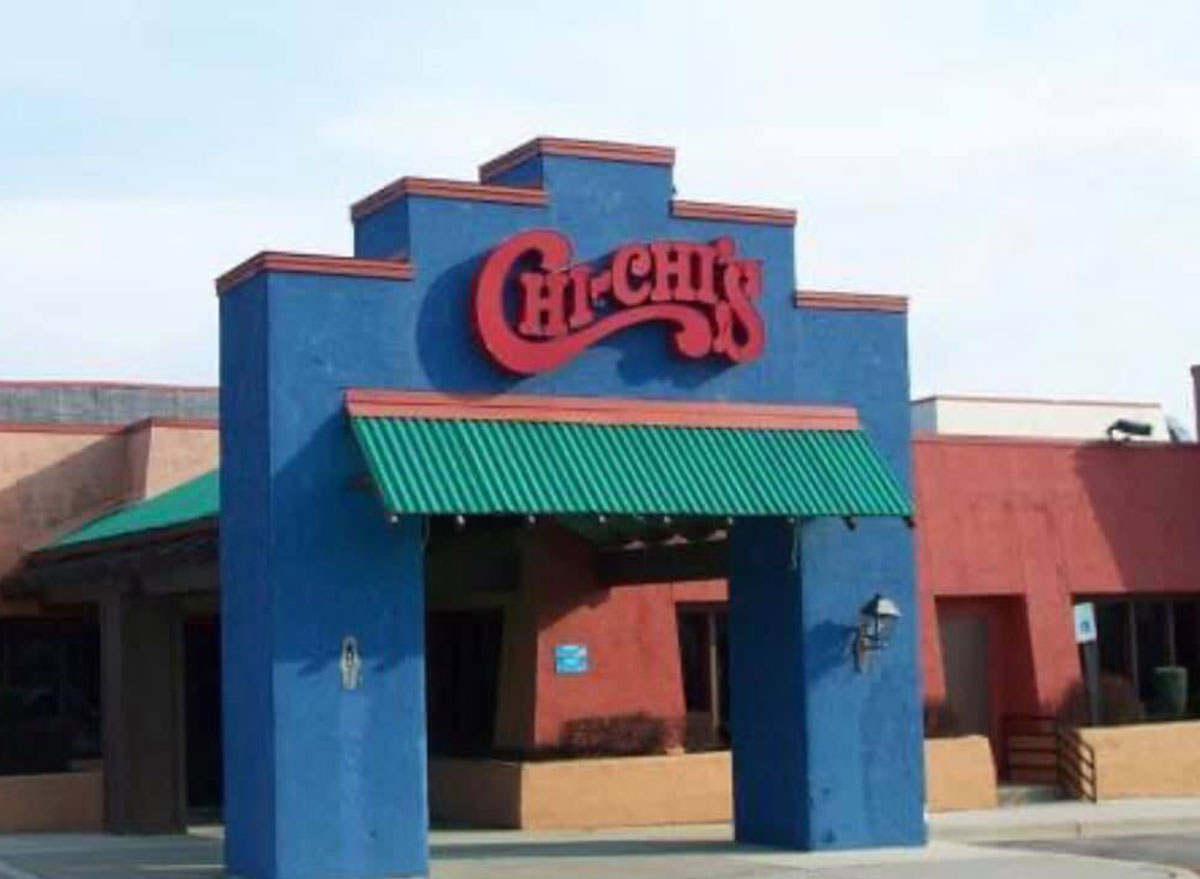
Perhaps one of the most shocking cases of fast-food poisoning managed to put a nail in the coffin of an already spiraling brand.
Chi Chi's was first launched in 1975 in a suburb of Minneapolis, and for years managed to quite successfully fill the burrito-shaped gap in the Midwestern fast-food scene. But by 2003, things were souring for the chain financially and Chi Chi's ended up filing for bankruptcy in October. A mere month later, the unfortunate brand became the source of the largest Hepatitis A outbreak ever to take place in the United States.
In November of that year, some 660 people fell ill and four died after coming into contact with the highly contagious virus at a Chi Chi's location in a mall in Monaca, Pa. The local health department traced the source of the outbreak to raw green onions that were an ingredient in the chain's salsa.
Already in the midst of bankruptcy proceedings, the chain had to pay out $800,000 in a class action settlement to some 9,000 people who had come into contact with the virus and needed to be immunized against it, as well as millions to individual victims who suffered serious health complications. All in all, the chain paid out $40 million as settlements for the victims of the outbreak and ended up closing up shop in the American and Canadian markets as a result.
However, you'll still be able to find the Chi Chi's in some European and Middle Eastern countries.
Jack in the Box
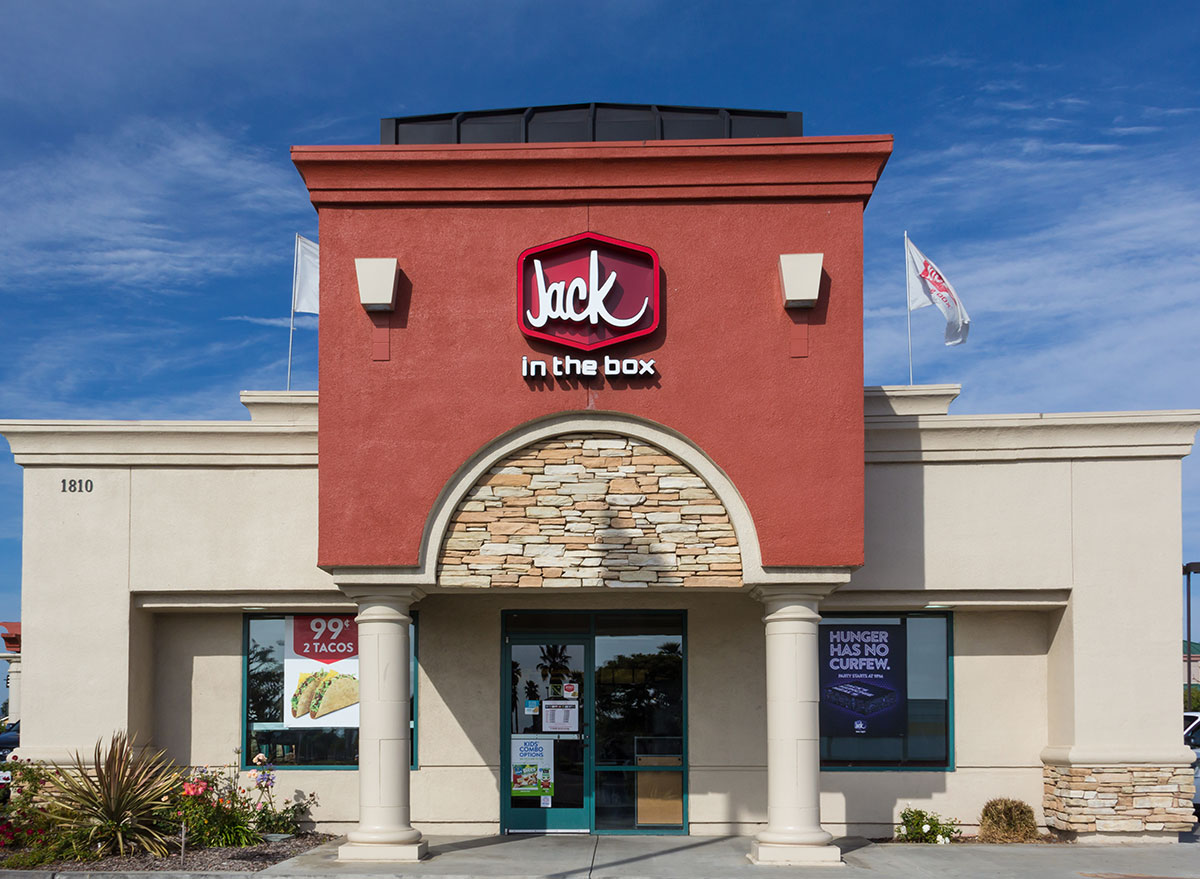
A deadly E.Coli outbreak that killed four children and left hundreds sickened has been labeled the "outbreak that changed the way Americans eat." According to Food Safety News, it all started in 1993 when the Washington State Department of Health observed an unusually high incidence of hemolytic uremic syndrome (HUS) among Seattle-area children. The syndrome, which destroys blood vessels in the kidneys and can lead to kidney failure, usually occurs after an infection with E.Coli. The infection outbreak was eventually traced back to hamburger patties sold at a local Jack in the Box restaurant.
Soon after, numerous cases were being reported out of Idaho, Nevada, and California, and eventually, as many as 73 Jack in the Box locations were implicated. More than 700 customers were sickened and the death count ended up reaching 4.
But the most shocking revelation came from the fact that Foodmaker, Inc., the parent company of Jack in the Box, had been warned ahead of time by its employees and the local health departments that its hamburgers were being undercooked, but continued the practice in order to achieve better texture.
The case ended up affecting several policy changes for fast-food restaurants and the meat industry, while Jack in the Box paid individual and class-action settlements totaling more than $50 million.
For more, check out the 108 Most Popular Sodas Ranked By How Toxic They Are.
